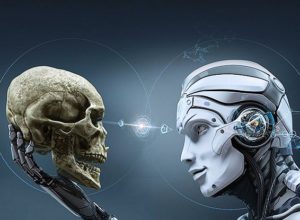Human warmth in a digital world? After many setbacks, Amazon finally opened its Amazon Go cashless shop last month. Just to be on the safe side, it's located at the foot of one of the skyscrapers at its Seattle HQ, because we're still a long way from 100% reliability!
French hypermarkets haven't reached that stage yet - but already, as well as doing away with checkouts, they're doing away with... cashiers: the customer does the job, without the slightest rebate! And yet the chain is saving on wages.
At McDonald's, you order online, via the app or at a touch terminal in the restaurant: there may still be an employee there to give you your menu, but for how much longer?
One evening, a few years ago, in New York, I was queuing in a McDonald's just behind an old lady who was obviously poor; once she'd paid for her packet, she wanted to leave a tip for the shop assistant, who refused it and put it in a box for the Red Cross.
Then it was my turn: chatting to the waiter, he explained that the customer regularly came more to buy a bit of human warmth than her meal, like so many other isolated senior citizens in the big city.
This is the paradox of the High Tech world that the GAFAs are building for us: a universe populated by robots - not humanoid robots, no, just sensors and AIs driving autonomous metros; shops without sales assistants or cashiers; barriers and doors that open because they have recognised our iris; and so on.
A world where senior citizens will live in flats fitted with sensors to sound the alarm if they fall or feel unwell... and where they will be bored stiff! In retirement homes, some patients are already deliberately setting off their individual alarms, just so they can talk to someone!
In Japan, robots keep lonely elderly people company, robots that look like little animals; others do babysitting and are starting to help children with their homework.
McKinsey predicts that automation will lead to the destruction of 375 million jobs by 2030, while Oxford's Cassandras predict that 47% of US jobs will disappear over the next 10 to 20 years, from accountants to taxi drivers, credit managers and, of course, cashiers.
We're going to create robots left and right to eliminate jobs and create urban deserts; and we're going to create others to make up for our loneliness...
I'm thinking of the old lady I met in that New York fast-food restaurant: she'll be entitled to a little robotic cuddly toy to break her solitude, whereas yesterday she had to make do with... a smile!
In such a world, marketers are going to have to start putting a hefty dose of empathy back into their products and services: is empathy the ultimate marketing product? In a world as bizarre as the one we're building, it's quite possible, alas!








